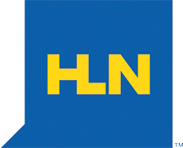What is a QDRO?
Since our post, “QDRO – Dividing up Retirement Accounts at Divorce“, we have received numerous requests for more information regarding QDROs. If you or someone you know is facing a divorce, we hope that the following information and resource links prove helpful in explaining QDROs in more detail. Dividing up retirement assets earned during marriage is too important an issue to not understand thoroughly.
What is a Qualified Domestic Relations Order? (QDRO)
According to the United States Department of Labor:
A “qualified domestic relation order” (QDRO) is a domestic relations order that creates or recognizes the existence of an alternate payee’s right to receive, or assigns to an alternate payee the right to receive, all or a portion of the benefits payable with respect to a participant under a retirement plan, and that includes certain information and meets certain other requirements.
Who can issue a QDRO?
According to LawInfo.com:
Any state agency or instrumentality with the authority to issue judgments, decrees, or orders or to approve property settlement agreements can issue a QDRO.
What is a domestic relations order?
According to nystrs.org:
Domestic Relations Order (DRO) is a judgment, decree or court order indicating how benefits will be divided between parties who are divorcing or are already divorced.
Why do I need a QDRO?
According to LawInfo.com:
Without a QDRO the plan may not be aware of a divorce or a former spouse’s right to any of the plan benefits. The plan may pay all of the benefits to the individual participating in the Plan and not the former spouse, even if there is a marital settlement agreement, because they generally do not meet the requirements of a QDRO. Also, if the individual participating in the Plan dies after the divorce but without a QDRO it is possible that the former spouse will receive no money from the plan.
Do I need an attorney that specializes in QDROs?
Most domestic relations attorneys (divorce lawyers) who are worth their salt are well versed in dealing with QDROs. However, you should always make sure that your attorney knows up front that you have retirement accounts such as an IRA, 401K, 403B, annuity, or any other related retirement assets. If you find yourself at divorce’s door, do not assume that your divorce settlement will protect your rights to your portion of your ex’s retirement account. Be proactive. Work with your attorney to enact a QDRO … and take control of your retirement future.
At what point during divorce proceedings should a QDRO be in place?
QDRO timing is critical. It’s important that you have a QDRO in place well before your divorce is finalized. QDROs must first be entered into court and then reviewed by the plan administrator for compliance with ERISA or other applicable law. In addition, you’ll want a clear idea of the terms of the plan. For example, some private pensions will not do immediate lump sum payments. Presenting the QDRO to the pension plan administrator well before your divorce will give you ample time to negotiate the best settlement possible.
Can a QDRO cover more than one plan?
Yes. A QDRO can assign the rights to various retirement plan benefits as long as each plan and the associated rights are clearly defined in the QDRO.
Can I rollover the money from a QDRO arrangement?
Your QDRO arrangement will allow you to withdraw your share of the money and roll it over into your own IRA (as permitted by the terms of the original retirement plan). This allows you to take over the management of your money. If you follow proper rollover requirements, you can also postpone paying any taxes. You will owe taxes eventually once you start withdrawing funds during your retirement.
I received my settlement, now what?
Taking control of your retirement assets is just the first step. We encourage you to give us a call today at (972) 473-4700 to discuss your options for putting your money to work. Over the years we have helped thousands of women learn how to protect and grow retirement assets, create income that can’t be outlived, and provide a financial legacy for future generations – all while eliminating stock market risk.













